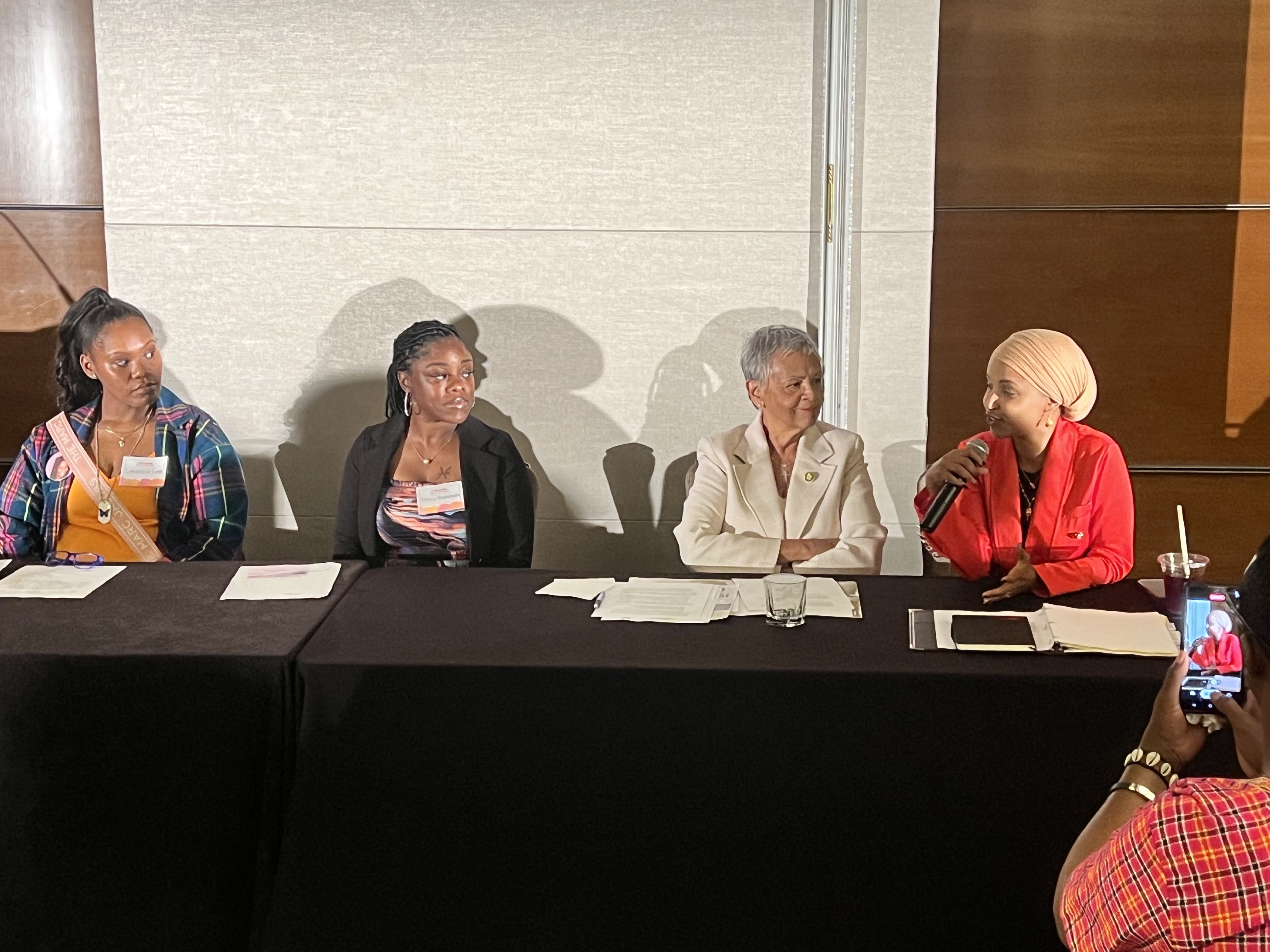Democrats Propose Bill to Establish DOJ Office for Missing and Murdered Black Women
September 21, 2023Democrat Representatives Ilhan Omar and Bonnie Watson Coleman have introduced a bill to establish a national Office for Missing and Murdered Black Women and Girls within the Department of Justice.
The Brittany Clardy Missing and Murdered Black Women and Girls Act, named after an 18-year-old Minneapolis woman who went missing in 2013 and was later found dead, models a similar bill passed in Minnesota earlier this year.
While Black girls and women make up only 15 percent of the female population in the U.S., they made up nearly 34 percent of women reported missing, according to a 2020 study by the National Crime Information Center.
“My message with this bill is to provide hope,” Rep. Omar told VICE News before announcing the bill at the Congressional Black Caucus Foundation’s 52nd Annual Legislative Conference in Washington, D.C. Wednesday night. “For it to serve as a beacon of hope to know that the stories of [the victims’] loved ones is going to create legislation that would make it so that other families and survivors don’t have to go through the same things they went through.”
Clardy’s sister, Lakeisha Lee, headed a task force that pushed to open the Minnesota office. “All the hard work I’ve done and the sacrifices that I’ve made for my family and connecting with other families was worth it,” Lee told VICE News. “This [bill] will be truly giving me a new start, our family and also other families and communities all over. This is just the blueprint. It’s time that Black women and girls are seen and heard and valued throughout that process.”
Clardy was missing for two weeks before her body was found in the trunk of her car. Lee and her family said police did not respond urgently when they reported her missing–a familiar sentiment among families of Black girls who disappear. Nationally, cases involving Black girls and women stay open four times longer than other cases, according to the Convention on the Elimination of Racial Discrimination as cited in the Clardy Act.

The proposed federal office calls for research that involves local community engagement, incorporating focus groups and interviews with Black women and girls with lived experience. It also includes a focus on data collection efforts to build a tracking and reporting infrastructure for missing cases.
The bill mentions the need to acknowledge that the already established efforts to find missing persons don’t go far enough to address what is happening to Black women specifically. “The existing federal resources dedicated to combating violence against women and girls is not enough to address this problem and additional resources must be targeted directly to protecting, supporting and providing justice to Black women and girls in the United States,” it says.
If passed, the office would be headed by a director appointed by the Attorney General who would be tasked with establishing a national advisory commission and coordinating with state and local agencies to collect data on cases nationwide like the rate at which they are solved and the time the cases stay open compared to similar cases in other demographics. The act also calls for the need to collect data on Amber alerts and missing reports that are classified as runaways, a nod to a common outcry from families who say police often dismiss their loved ones’ disappearances as runaway cases, which do not get the same resources and attention.
The Clardy Act also incorporates a grant program for community organizers to provide services and training for police, attorneys and judges, and funding for survivor support efforts.
“Our communities are facing a crisis and we can't wait any longer for action,” Omar said. “Black women deserve to walk freely without the threat of harm.”
